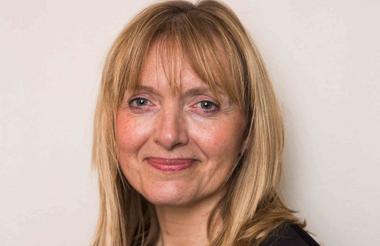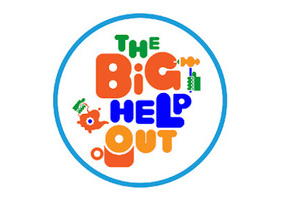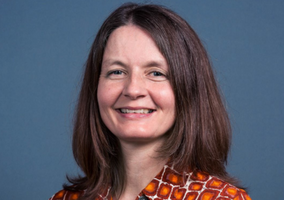The Big Help Out has been a cause for controversy, with the volunteering event being linked to the coronation of Kings Charles III by its organisers.
An Observer article also caused debate recently after it suggested the Big Help Out would lack participants due to a volunteering downturn in the UK.
Some in the charity sector have criticised the volunteering initiative for being limiting and others have said some might not want to get involved due to its links to the monarchy.
A group of 32 charities called Shaping the Future for Volunteering, which is co-chaired by Catherine Johnstone, chief executive of the Royal Voluntary Service, were involved in the creation of the Big Help Out.
Responding to the debate, Johnstone says: “The Big Help Out is an innovative and possibly even a disruptive idea, that is encouraging us to start making the necessary changes in the sector that will generate more positive results when it comes to volunteer recruitment.
“We need to do things differently in order to welcome more people into volunteering, including making our opportunities far more accessible, which is what the Big Help Out is about.
“It’s challenging us to work together to create more straightforward pathways for people to be able to give their time, skills and expertise, that we hope will last far beyond the coronation. The response so far has been incredibly heartening, there have been over 50,000 downloads of the Big Help Out app, and our recent polling told us that younger people in particular are planning to participate.
“There’s also a wonderful mix of charities and local community organisations involved with the Big Help Out, and it will be exciting to see them all embracing newcomers at the start of their volunteering journeys.”
Idea came about long before the coronation
The idea for the Big Help Out was conceived before the idea to involve the monarchy, Johnstone says. Shaping the Future for Volunteering thought of the concept last year.
“We came up with this idea of instead of a big night in, or a Comic Relief, or something about money, we could base it on a day of volunteering.”
Initially, Johnstone and Matt Hyde, CEO at Scouts, discussed joining the event up with Queen Elizabeth II’s platinum jubilee due to a lot of the charities having her as its patron. For various scheduling reasons, it did not go ahead.
So when the Royal Households and the Department for Digital, Culture, Media and Sport wanted the king’s coronation to focus on active citizenship, Johnstone and Hyde said it already had the concept of the Big Help Out which seemed to fit into what they were looking for.
A ‘try before you buy’ model
Volunteering can sometimes be conceived as a long-term commitment that can put off potential volunteers, Johnstone says.
“The Big Help Out doesn’t have volunteering in its title or strapline. You want people to be able to try before they buy, they want to be able to find something they're passionate about, but they want to see it in a shop window.
“They want to be able to go along without being told that well, if you come along, you're going to have to sign up for 16 hours a month or every Wednesday afternoon for the rest of your life. People want to be able to get into it in the way that works for them and their lives.”
Johnstone says it's vital that the initiative targets the two-thirds of the British population that do not volunteer already.
She continues: “As long as you take people on a journey at their pace, their speed, and they have a good time, and they feel valued and connected, then actually the longer-term proposition will happen ... it won't happen for everybody; but it doesn't need to happen for everybody.”
One-off support is “great” and “that's what's kept civic society going, quite frankly”, Johnstone adds.
Avoiding the word ‘volunteering’
Potential names were tested with the public for the day of volunteering, and the Big Help Out gained the most traction, Johnstone says.
“Ordinary people, particularly people from the areas where traditional volunteering take up is lower - they loved it, because it was really simple. It wasn't because they are not intellectually capable, it just says what’s on the tin.”
The Big Help Out also does not have volunteering in its title or the strapline because the term can produce connotations that are not inclusive, Johnstone says.
“We have slipped into a language around volunteering, that is sort of one-dimensional. And because it’s associated with the parts of the population that do traditional volunteering, there are inevitably people in the community who just think: ‘Oh, that’s probably not for me because I don’t fit into that demographic or into that kind of environment.’”
Johnstone says the term “volunteering” can also have contrasting connotations in different languages.
“If you are Polish, the word volunteering only means bad things. So, in other countries, volunteering can mean anything from conscription to imprisonment.”
‘If we didn’t have volunteers, a lot of people would die’
Johnstone says she does not agree that volunteers are having to step into the roles of paid NHS professionals.
“When a lifeboat arrives, nobody ever looks up to the arm that comes down and says ‘Oh, excuse me. Are you a paid member of staff or a volunteer?’ It’s just nonsense. The Coast Guard service commission and RNLI deliver the majority of those saving lives at sea services because it’s a blended model.”
“So you have got people who are paid working absolutely alongside highly trained volunteers. Nobody ever questions it. Nobody ever says, ‘why have you got a volunteer on it?’ If you didn’t have that blended model, most people would die when they got swept out to sea because you could never ever fund all of the capacity that would be needed.”
Volunteers add value and capacity, and this was shown during the pandemic during the vaccine rollout, as thousands signed up as NHS volunteers, she adds.
‘Volunteers are necessary - especially in the NHS’
Johnstone started her career as a nurse in 1985 before moving onto work in charities. RVS provides the NHS volunteers service alongside software company GoodSAM, so Johnstone says she has lots of experience with the health service.
She says the tasks a volunteer carries out would not be carried out by a paid NHS worker, and never have been before.
Some 70% of the charity sector is driven by volunteering, Johnstone says.
“At the moment, everybody’s got a bit aerated about the capacity within the NHS. And therefore every time you add in a volunteering role, people go: ‘Oh, that should be paid.’ No, it shouldn’t. It never was and never would have been because it doesn't belong in the sickness service; you’re treating the sickness service as a rehab and social care service.”
She says that volunteers can provide services that NHS staff are unable to, such as comfort and company during end-of-life care.
“We have to separate out what our current workforce issues in both health and social care with where volunteers can step forward to add capacity.
“We know that nurses have not got enough time to be able to sit with patients who don't have family around them while they’re dying.”
“If you use the Marie Curie service, the nurse can ring up and say: ‘Mrs So and So it looks like we’re approaching. Is there any chance you've got someone who could come in for the next few days and sit with her?’ And they’ve got a little rota and they come in and they sit with him or her so that they’re not on their own.”
Volunteering fills this gap, she says, which would otherwise mean someone died alone.
Related articles












